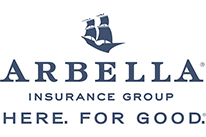
Launching any startup means assuming a tremendous level of risk. It's not a hypothetical risk, either, as startups fail at a rate of around 90 percent over the long haul.
Some of those risks remain facts, whether you launch a small side business or a full-time business. For example, you cannot control whether people will want your product or service. Market research can only tell you so much in those regards.
You can exert control over some of the other risks. Some entrepreneurs invest in startup insurance very early on.
Not sure if you need startup insurance in Massachusetts? Keep reading and discover if you should get it.
When you first buy a house or rent an apartment, you get a homeowners policy or renters insurance. Register a car and the state starts looking for car insurance. Yet, all of these policies typically cover one thing.
Startups face a wide range of risks. So, a startup insurance policy acts as a kind of catch-all policy that covers the most frequent insurance needs that business faces.
Some companies call these bundles a business owners policy or a commercial bundle.
These kinds of policies almost always include a few types of coverage, such as:
Let's take a closer look at each to help give you an idea of what you'll get with a startup insurance package.
General liability coverage helps protect you from personal injury and property damage claims. For example, let's say a potential investor visits your office and takes a fall. Your general liability coverage helps cover the costs.
While general liability covers other people's stuff, helps cover damages to a wide range of your stuff, such as:
It helps ensure that you won't go under if someone breaks in and steals or otherwise damages your business property
Let's say that you're an engineer who does consult. Another company hires you for help with their new product development . You make a mistake that costs that other company a lot of money.
Professional liability coverage helps you cover the legal fees and associated costs.
Many startup policies offer optional extras that help you maintain business operations or deal with unexpected losses. Some of the more common extras include workers' comp, cyber insurance, and business interruption insurance.
Workers' compensation coverage is a requirement in most states for any business that has employees. It helps an employee cover medical costs, rehab, and replaces some wages for employees injured at work.
You are under legal obligations to protect customers' personal and financial data. If a data breach exposes this information, you can get fines and end up on the wrong side of a lawsuit.
Cyber insurance protects you from the liability associated with data breaches. It typically covers measures that help restore customers as well, such as customer notification and identity protection.
Disasters create utter havoc for businesses. One of the worst potential outcomes after a disaster is that the business must close its doors for repairs or renovations. While your commercial property insurance will cover most of those costs, it does nothing for your lost income.
Without a steady flow of revenue, you can't pay employees, cover taxes, or make mortgage payments. BI insurance provides a financial safety net to cover exactly those kinds of costs if a disaster occurs.
Startup insurance offers a few key benefits that you should keep in mind.
The biggest benefit is that it lets you deal with all or nearly all of your insurance needs in one fell swoop. Rather than comparing a half dozen kinds of policies across a half dozen companies, you compare one kind of policy across those companies.
It simplifies your payments. Instead of sending out half a dozen payments to different insurance companies, you send one payment to one company. It also means you always know that your insurance is up to date after one payment a month.
Insurance companies like selling bundled packages because it simplifies their lives, but it also increases their overall revenue. The upshot for you is that they'll typically give you a discount compared with getting policies piecemeal.
An important but intangible benefit is that you get some peace of mind. Knowing that all the bases are covered lets you focus on business building, instead of worrying about what might go wrong.
Startup insurance doesn't come with many pitfalls, but there are a few. There are certain types of high-risk companies where a startup policy won't work. For example, general contractors typically carry general liability policies that offer substantially more coverage than you see in a typical startup policy.
The other pitfall is that startup policies prove overkill for some businesses. Let's say you start an eCommerce business out of your home with your spouse. Many of the normal risks either don't exist or are largely reduced.
These types of businesses can often get by with a less substantial kind of policy, such as an in-home business policy. Mind you, that doesn't apply when you see customers or clients in your home. If customers come to your home, you need the exact same kinds of coverage as any other business.
For most startup businesses, the answer is probably a firm yes. A startup policy covers the important stuff out of the gate, with liability, property, and professional coverage..
You can upgrade the policy to include extras that help you manage other kinds of necessary coverage, such as workers' comp. You can often add on desirable coverage like cyber insurance that keeps you out of trouble if someone hacks your system.
Just make sure you understand the insurance requirements for your industry.
Econosurance offers startup insurance packages for new businesses. If you'd like more information about startup policies, contact Econosurance today.

Mobile Home Insurance: An In-Depth Coverage Guide
If you own a mobile home, several threats could affect your house more severely than a traditional house. For example, many people have heard about the devastation a tornado can cause in mobile home camps.

What Is a Home Insurance Deductible?
5.1% of insured homes in the United States had a home insurance claim in 2019, according to ISO. Nearly all of these claims were due to property damage, including theft, which amounted to 97.2% of claims. The remaining 2.8% of claims were liability losses.

5 Tips for Choosing the Right Home Insurance Companies for You
Homeowners insurance isn't on most people's minds until they experience damages, a disaster, or someone gets injured on their property. Only about 85% of homeowners have insured their homes.




